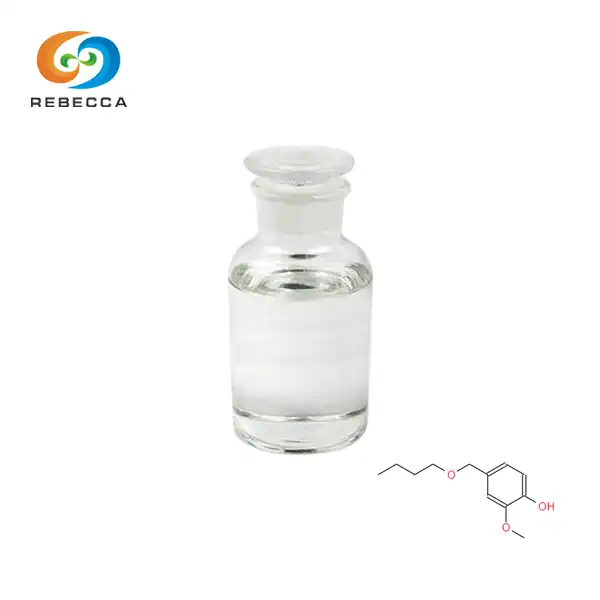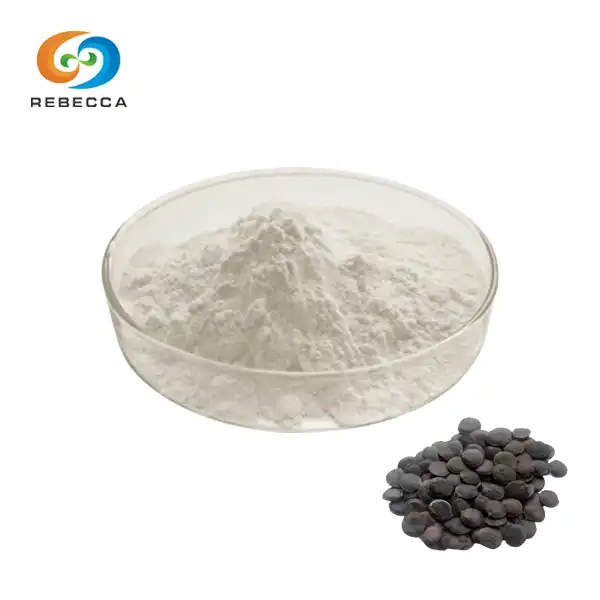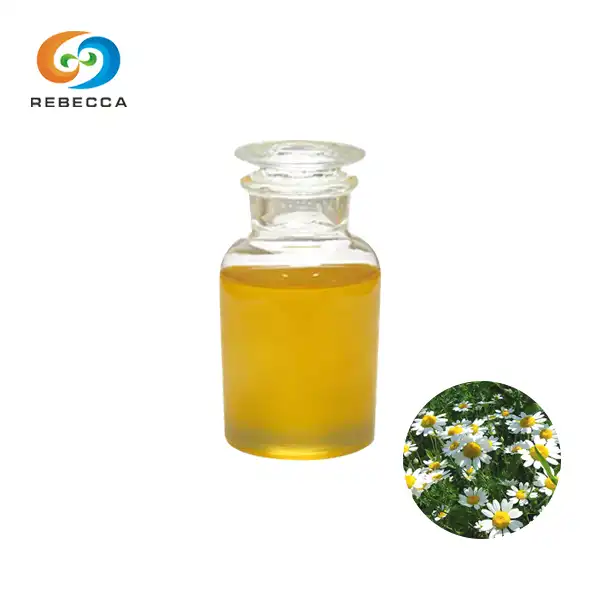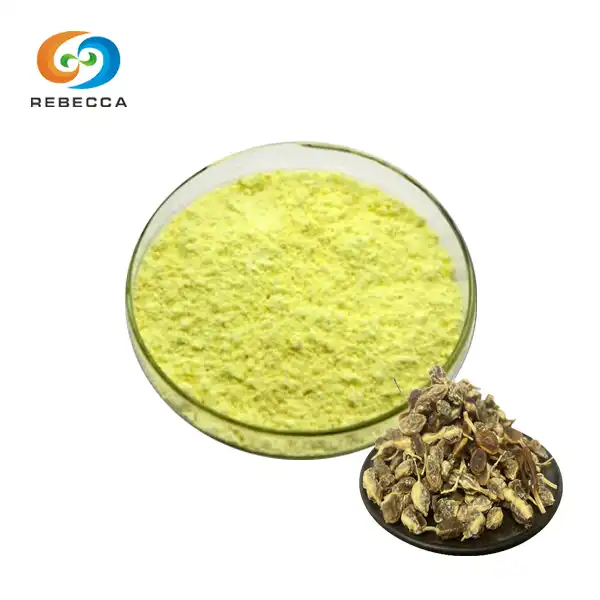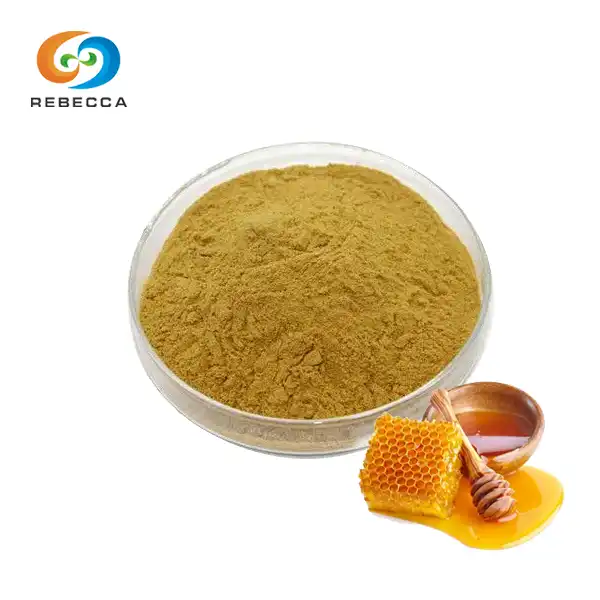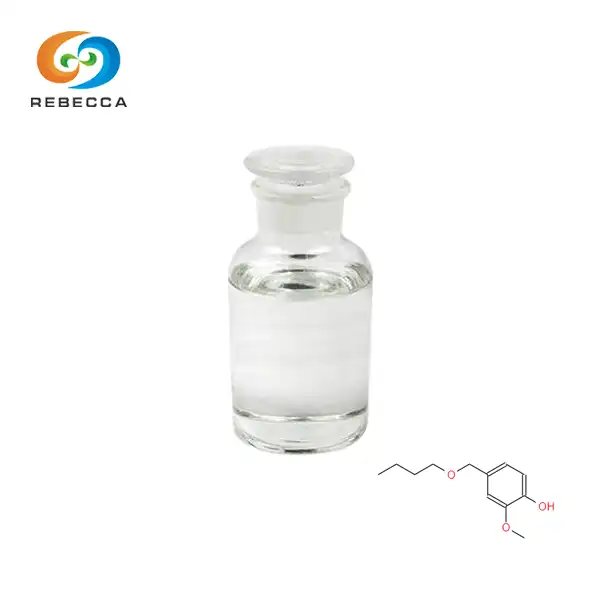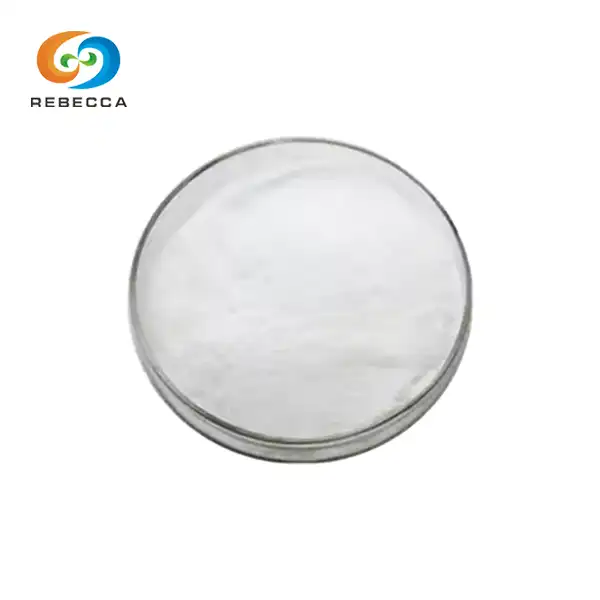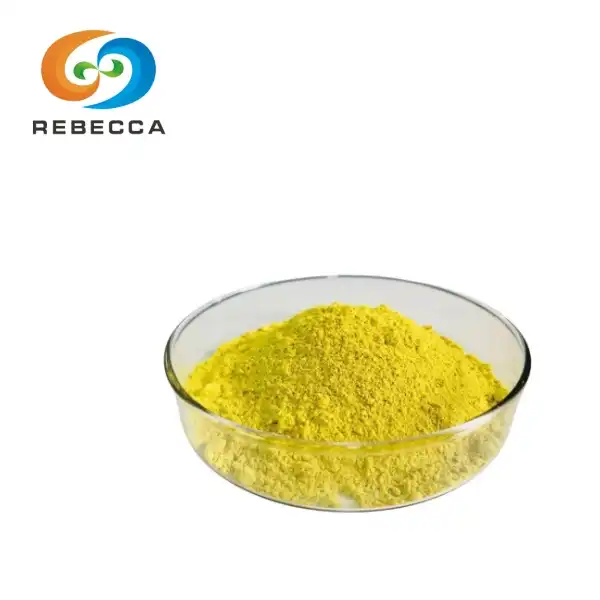Fucoxanthin Benefits And Side Effects
As interest in natural compounds for health and wellness continues to grow, fucoxanthin powder and fucoxanthin extract have become popular subjects of scientific research. In this comprehensive guide, we'll explore the scientifically proven benefits of fucoxanthin, its potential side effects, and its safety for long-term use.

What are the scientifically proven benefits of fucoxanthin?
Fucoxanthin, derived from organic sources like brown algae, has shown promise in various areas of health and wellness. While research is ongoing, several potential benefits have emerged from scientific studies:
1. Weight Management
One of the most well-known potential benefits is its role in weight management. A clinical trial involving 151 obese, non-diabetic women with non-alcoholic fatty liver disease found that a combination of fucoxanthin (0.8-4.0 mg) and pomegranate seed oil led to increased weight loss and reduced body and liver fat. Animal studies have also shown promising results, with organic fucoxanthin promoting weight loss in obese mice, especially when combined with fish oil.
While these results are encouraging, it's important to note that more extensive human trials are needed to fully establish its effectiveness for weight loss.
2. Antioxidant Properties
Fucoxanthin exhibits potent antioxidant properties, which may help protect cells from oxidative stress. This characteristic is particularly interesting in the context of skin health. In mouse studies, topical application of fucoxanthin protected skin cells from UV radiation-induced damage and premature aging. These findings suggest potential applications in skincare and sun protection, though human studies are still needed to confirm these effects.
3. Anti-Inflammatory Effects
Inflammation is at the root of many chronic diseases, and fucoxanthin has shown anti-inflammatory properties in several studies. In animal models, it reduced inflammation associated with insulin resistance and eye conditions. While these results are promising, human studies are necessary to determine if these anti-inflammatory effects translate to clinical benefits.
4. Potential Neuroprotective Effects
Emerging research suggests that fucoxanthin may have neuroprotective properties. In mouse models of Alzheimer's disease, it reduced cognitive impairment. Additionally, in mice with traumatic brain injury, fucoxanthin extract was found to reduce brain cell death. These findings open up exciting possibilities for fucoxanthin in brain health, though human studies are needed to confirm these effects.
While these potential benefits are exciting, it's crucial to remember that much of the current research on fucoxanthin is based on animal and cell studies. More human clinical trials are needed to fully understand and confirm its effects on the human body.

Can fucoxanthin cause any side effects?
As with any supplement or natural compound, it's important to consider potential side effects of fucoxanthin. While generally considered safe, some individuals may experience adverse reactions:
1. Gastrointestinal Issues
Some people may experience mild gastrointestinal discomfort when taking fucoxanthin supplements. This can include symptoms such as bloating, nausea, or diarrhea. These effects are typically mild and often resolve as the body adjusts to the supplement.
2. Allergic Reactions
Individuals with allergies to seaweed or algae may be at risk of allergic reactions to fucoxanthin extract. Symptoms of an allergic reaction can range from mild (such as itching or hives) to severe (such as difficulty breathing). If you have known allergies to marine products, it's crucial to consult with a healthcare provider before using fucoxanthin.
3. Potential Drug Interactions
Fucoxanthin has been shown to inhibit the enzyme CYP3A4, which is responsible for metabolizing many prescription medications. This interaction could potentially enhance or reduce the effects of certain drugs by altering their blood levels. Medications that may be affected include some opioids, immunosuppressants, antihypertensive drugs, and statins. It's essential to consult with a healthcare provider before starting fucoxanthin if you're taking any medications.
4. Effects on Blood Clotting
Some studies suggest that fucoxanthin may impact blood clotting. While this could potentially be beneficial for some individuals, it may pose risks for others, particularly those taking blood-thinning medications. Again, consultation with a healthcare provider is crucial before starting fucoxanthin supplementation.
It's important to note that the safety profile of fucoxanthin extract is still being established, and more research is needed to fully understand its potential side effects. The lack of adverse effects observed in the limited clinical trials conducted so far is encouraging but doesn't guarantee safety for all individuals or in all circumstances.

Is fucoxanthin safe for long-term use?
The long-term safety of fucoxanthin supplementation is an area that requires further research. While short-term studies have shown promising results with minimal side effects, the effects of prolonged use are not yet fully understood.
1. Current Safety Data
The safety data available for fucoxanthin is primarily based on short-term studies and animal research. In these contexts, it has shown a favorable safety profile. In mice, even at high doses, organic fucoxanthin did not increase mutation rates and was not toxic to major organs such as the kidney, liver, spleen, and gonads. The only notable effect at high doses was an increase in blood cholesterol levels.
2. Limitations of Current Research
While these results are encouraging, it's important to recognize the limitations of the current research. Most studies on fucoxanthin have been short-term, and the effects of long-term use in humans are not yet known. Additionally, much of the existing research has been conducted in animal models, which may not always translate directly to human physiology.
3. Considerations for Long-Term Use
For those considering long-term use of fucoxanthin supplements, several factors should be taken into account:
- Individual health status: People with pre-existing health conditions or those taking medications should consult with a healthcare provider before starting long-term fucoxanthin supplementation.
- Dosage: The appropriate long-term dosage of fucoxanthin has not been established. The doses used in the limited human trials (0.8-4.0 mg per day) provide a starting point, but optimal dosing may vary based on individual factors.
- Quality of supplements: As with any dietary supplement, the quality and purity of fucoxanthin powder can vary. Choosing high-quality, third-party tested supplements is crucial for safety.
- Monitoring: Regular check-ups and blood tests may be advisable for individuals using fucoxanthin long-term to monitor for any potential effects on cholesterol levels or other health parameters.
While the current data on fucoxanthin is promising, more research is needed to definitively establish its long-term safety profile. As with any supplement regimen, it's advisable to consult with a healthcare provider before starting long-term use, especially for individuals with pre-existing health conditions or those taking medications.
Fucoxanthin Powder Supplier
Looking to secure a reliable partner for your production needs? Look no further than Rebecca Bio-Tech. With our three advanced production lines, we produce over 100 high-quality products, including fucoxanthin powder, with an annual capacity exceeding 2,000 tons. Our commitment to a stable supply chain ensures consistent availability for your business. We offer competitive pricing and provide free samples along with MSDS documents, showcasing our dedication to transparency and customer satisfaction. Reach out to us at information@sxrebecca.com to learn more and take the first step towards a successful partnership.
References:
- Abidov, M., et al. (2010). The effects of Xanthigen™ in the weight management of obese premenopausal women with non-alcoholic fatty liver disease and normal liver fat. Diabetes, Obesity and Metabolism, 12(1), 72-81.
- Maeda, H., et al. (2007). Fucoxanthin from edible seaweed, Undaria pinnatifida, shows antiobesity effect through UCP1 expression in white adipose tissues. Biochemical and Biophysical Research Communications, 332(2), 392-397.
- Hosokawa, M., et al. (2010). Fucoxanthin regulates adipocytokine mRNA expression in white adipose tissue of diabetic/obese KK-Ay mice. Archives of Biochemistry and Biophysics, 504(1), 17-25.
- Urikura, I., et al. (2011). Protective effect of fucoxanthin against UVB-induced skin photoaging in hairless mice. Bioscience, Biotechnology, and Biochemistry, 75(4), 757-760.
- Maeda, H., et al. (2015). Anti-obesity and anti-diabetic effects of fucoxanthin on diet-induced obesity conditions in a murine model. Molecular Medicine Reports, 12(1), 1536-1542.
